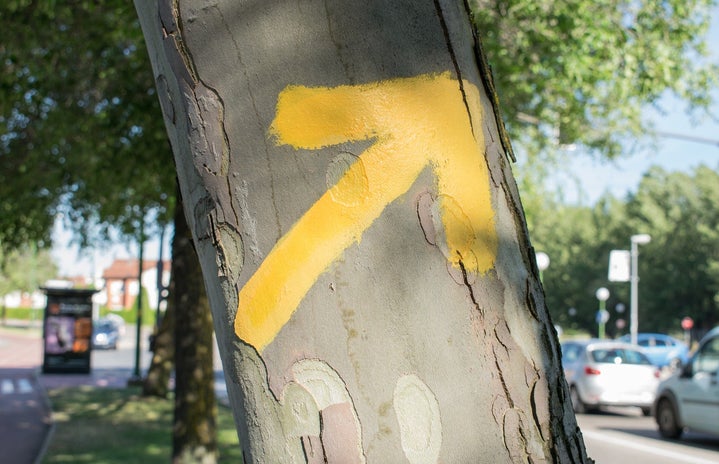If you’re graduating soon, we know what’s on your mind: getting a job. And who can blame you? Unfortunately, we have some bad news: According to a new study published by The Center for College Affordability & Productivity, 48 percent of employed college graduates in the U.S. are “in jobs that the Bureau of Labor Statistics (BLS) suggests requires less than a four-year college education.” The founder of the center and leader of the study, Richard Vedder, predicts this won’t change any time soon. So, ladies, it’s time to face the facts: After graduation, there’s a good chance you’ll be underemployed.
What’s Underemployment?
Underemployment is a phenomenon that recent college grads are facing now more than ever. Generally, it means that you’re working a job you’re overqualified for. That could mean working retail, being a cashier, or waitressing—three jobs that don’t require a bachelor’s degree. In fact, according to the same study, over 1.7 million college grads are working jobs in those categories.
But unemployment isn’t always minimum-wage gigs. It can even encompass full-time positions where you don’t get paid as much as your degree warrants, or you aren’t using the skills and knowledge you learned in college.
Why is this happening? It comes down to numbers. There are simply more college graduates than there are jobs for degree holders. Unfortunately, that means the chance you’ll face future underemployment is high, but that doesn’t mean you’ll never reach your dream job!
Should I Be Worried?
There is definitely reason for concern. First, there’s the financial factor. You paid thousands of dollars for a degree, and now you’re only making $10 an hour. Those numbers definitely don’t add up, and if you stick to this job’s hourly wages, you’ll be in debt for a long time to come.
Then there’s the experience aspect. So many jobs require 2 to 3 years of professional experience, and you aren’t able get that experience if no one will hire you… but no one will hire you without that experience.
Put those two worries together, and you’ve got a pretty scary but totally common situation on your hands. “There is nothing more terrifying then going off on your own into the ‘real world’ with nothing more than your wits and a small paycheck,” says Katherine Fritcke, a senior broadcast journalism major from Drake University.
Despite the concerns, there are ways you can combat (or at least deal with) underemployment.
What You Should Do
If you can’t land your dream job by graduation day, the best thing you can do is find a job that you may be overqualified for, but is at least in your field.
“I am looking for both full-time and part-time jobs that will get me into the radio market,” Katherine says. “I know that in my field you don’t get paid that well, but it’s always a job.” Plus, Katherine isn’t limiting herself geographically; she’s applying to jobs in the Midwest, and closer to her home state of Arizona.
“I think it’s important for all college graduates to have a plan B—and C and D—if their ‘dream job’ doesn’t work out right away,” says Helen Boote, a 2011 graduate of Illinois State University. “It might mean starting out in a position that you think you don’t have any interest in, but it can always lead to bigger and better things.”
Your best bet is to apply for several jobs you’d love, as well as a few part-time jobs that aren’t ideal but would help advance your career. If none of those work out by graduation day, go with plan C: start applying for lower-level jobs to make some money while continuing your job search.
[pagebreak]
Make the Most of It
If you do end up in a job that’s less-than-ideal but still in your field, you’re in a good spot! In this position, be sure to look for opportunities to grow professionally.
For example, Annette Watson, a Professional & Career Development Coordinator at Drake University, says this is a great time maintain or build your skills and credentials, revaluate or update your resume, network with your contacts, and meet new professionals in your field.
Helen, who holds degree in elementary education, knows all about this. Even after applying to countless teaching positions, she couldn’t land a job. In November, she became Assistant School Programs Manager at the DuPage Children’s Museum in Naperville, Ill. While it isn’t her dream job, she’s happy with the position. Helen is learning about important topics that her college coursework didn’t cover—like early childhood education—and she’s getting plenty of professional development opportunities.
“I feel fulfilled in this job,” Helen says. “I still would like to one day have my own classroom, but for right now I’m excited to have this new opportunity. I think it will serve as a good stepping stone to when I eventually get a teaching job.”
Annette also advises giving your job some time to see how things work out. Even if you’re overqualified for the job, don’t have a condescending attitude. If you’re optimistic about the opportunity and work hard, “you may get recognized for doing an outstanding job and other opportunities may present themselves,” Watson says. A promotion could be in your future, leading you to your dream job or better.
Plus, being put in a different setting or doing new tasks can help you learn about yourself. “You may find a new passion or skills that you may not have discovered previously,” Watson says.
Moving Forward
Regardless of how much you learn from your temporary position, make sure you’re still working toward your dream job. Keep searching for job openings and applying for positions that interest you or could benefit you in the long-run—you’ll get there some day!
As you move on from your underemployment, it’s important to keep a positive attitude about your previous position. “If you work to grow your skills and contribute positively, underemployment should not be negatively perceived,” Watson says. “If you treat it as a job that is beneath you, it may be seen differently.” Employers won’t be put off by your underemployment if you communicate it well!
In any case, most employers know that it’s a tough job market, so you’ll be able to explain your less-than-ideal job experience. Be sure to focus on the positives, and your underemployment may serve you well.

